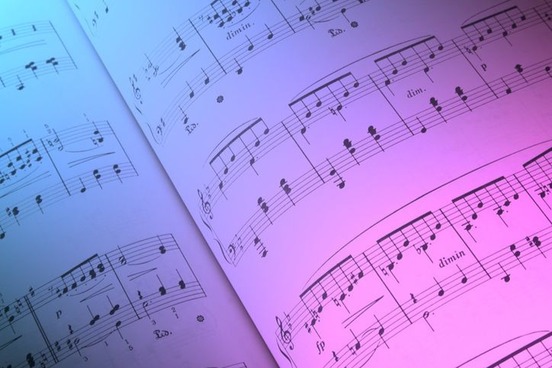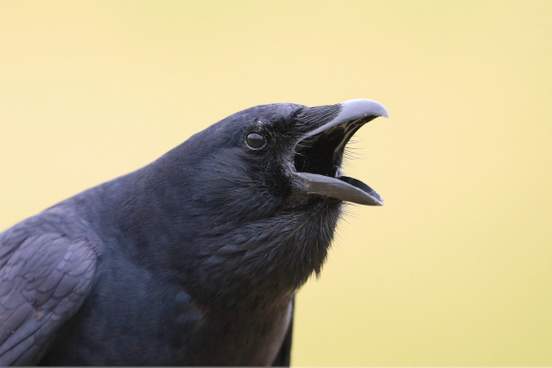
Berceuse
A berceuse is a lullaby, particularly one performed in 6/8 time, a rhythm meant to suggest a rocking motion. Fittingly, it derives from the French bercer (“to rock”) and ultimately the Old French noun bers (“cradle”). While the German Johannes Brahms was known for his lullabies, berceuse appears in the names of works by French composers including Camille Saint-Saëns and Maurice Ravel.
Clara celebrates her Nutcracker with a polka; Fritz and the other boys disrupt the girls’ lullaby berceuse with a battery of toy instruments; the battle scene pitting Clara’s dolls and Fritz’s hussars against the mice is a percussion riot.
— Jeffrey Gantz, The Boston Globe, 30 Nov. 2018

Aria
An aria (from an Italian word meaning “atmospheric air”) is a long and elaborate melody that is usually part of an opera. Arias are typically written for a solo singer, and often have dramatic overtones, but some are more comical.
One of the most popular arias is “La donna è mobile” from Verdi’s Rigoletto. Its use in TV commercials and Bugs Bunny cartoons have given the aria a comic impression, but it plays a serious role in the opera, as it leads to a scene when Rigoletto mistakenly kills his own daughter.

Threnody
English has a number of words for songs performed to lament the dead. There are dirge, and elegy, and requiem. Threnody takes the Greek word for “dirge” (thrēnos) and applies the same ending found in comedy, tragedy, and melody.
The threnody for Martin Luther King that forms [Luciano Berio’s Sinfona’s] second movement had a haunting intensity, and the huge central scherzo, which swamps the third movement of Mahler’s Resurrection Symphony in a barrage of musical quotes and verbiage, was as unnerving as it was witty.
— Tim Ashley, The Guardian, 9 Dec. 2018

Carol
When we hear carol, we typically think of Christmas songs, particularly those with traditional or religious themes like “Away in a Manger” or “O Come All Ye Faithful.” (“Grandma Got Run Over By a Reindeer” would probably be a stretch.)
But originally the term referred to dance performed in the round, and later, the song of merriment to which such dances were performed. The element of joy in such songs carried over into extended uses, from natural calls (“the loftier flight and clear carol of the bird”—Henry David Thoreau, A Week on the Concord and Merrimack Rivers, 1849) to songs of exultation in celebration of the Nativity.

Aubade
Aubade is a word for a song for a particular time of day: the dawn. It can refer to a song or poem greeting the dawn, a morning love song, or a song between lovers parting with the rise of the sun.
“Aubade” gives itself as the title of Philip Larkin’s poem which begins, “I work all day, and get half-drunk at night. / Waking at four to soundless dark, I stare. / In time the curtain-edges will grow light.”
The Old Occitan word auba means "dawn" and is believed to come from Latin albus, meaning "white." The antithesis of the aubade would be the nocturne, which greets or celebrates the evening or night.

Anthem
Like carol, anthem makes us think of a particular kind of song, as in a national anthem. What typifies an anthem in its original sense is its tone of praise or gladness for one’s homeland.
Anthem is related etymologically to antiphon, which is a song sung in alternating verse by two separate choirs. Originally, anthems were devotional verses sung as a response during a religious service. The word can now be used for a rousing popular song that typifies or is identified with a particular subculture, as in “a grunge anthem.”

Canticle
The Latin noun canticum means “song” and its related verb canere means “to sing.” From these roots we get a number of song-related words: canzone (“a medieval Italian or Provençal lyric poem in stanzaic form”), cantata (“composition for one or more voices usually comprising solos, duets, recitatives, and choruses and sung to an instrumental accompaniment”), chanty (“a song sung by sailors in rhythm with their work”), incantation (“use of spells or verbal charms spoken or sung as a part of a ritual of magic”) and canticle, for a hymn or song, specifically one of the liturgical songs in the Bible.
A centerpiece of this year’s program is the six-movement Magnificat attributed to Giovanni Battista Pergolesi, but now believed by most scholars to have been composed by Pergolesi’s teacher, Francesco Durante (1684-1755). The Latin text, known as the canticle of Mary, has been set to music by composers from the Renaissance to the current day, from Vivaldi and J.S. Bach to Rachmaninoff, John Rutter and Ralph Vaughan Williams. Its exultant passages of praise recall the power of such choral classics as Handel’s Messiah.
— Nils Kildegaard, The Vineyard Gazette (Massachusetts), 29 Nov. 2018

Bird Songs
15 bird sounds, and the birds who make them
Listen and Learn >





